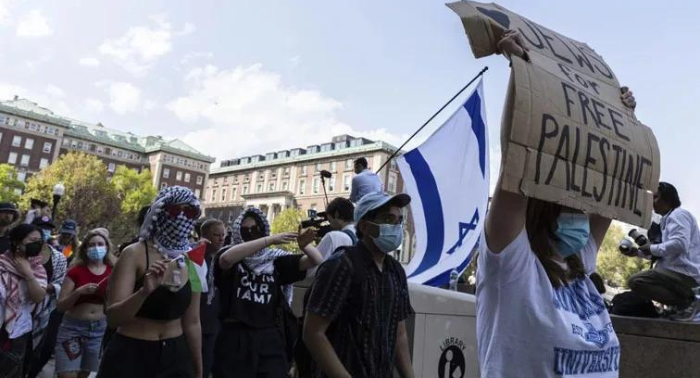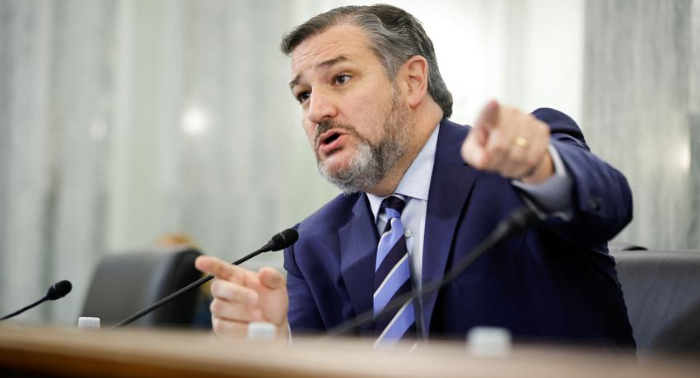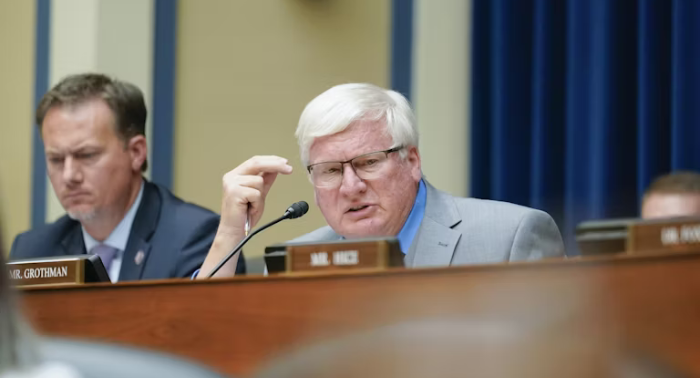Colleges across the United States urged pro-Palestinian student protesters to dismantle tent encampments with increasing urgency on Monday. At the University of Texas, police made more arrests, while Columbia University announced the beginning of student suspensions for those defying an ultimatum to vacate the encampment by the afternoon deadline.
Upon their return to the University of Texas at Austin, protesters were met by a large contingent of law enforcement officers, many clad in riot gear. Six protesters were swiftly arrested, with others apprehended one by one. Pepper spray was deployed after a group of protesters obstructed a police van carrying those arrested. Although the crowd eventually dispersed, they continued to impede the campus exit. Subsequently, officers used flash bang explosives to clear a path for the van’s departure.
Governor Greg Abbott shared footage of troopers arriving at the 50,000-student campus on social media, emphasizing that encampments would not be tolerated, and arrests were underway.
Just last week, police, including some on horseback, clashed with protesters at the university, resulting in 34 arrests. Meanwhile, Columbia University in New York began suspending students after activists failed to comply with a 2 p.m. deadline to vacate the encampment. Despite warnings, the protesters continued their activities, chanting, clapping, and drumming.
Columbia University issued a notice stating that students who left the encampment by the deadline and committed to abiding by university policies could finish the semester without repercussions. However, those who remained faced suspension pending further investigation.
The protests at Columbia, which initially involved setting up tents on campus, served as a catalyst for pro-Palestinian demonstrations nationwide. Students have been engaging in heated debates over the Israel-Hamas conflict and advocating for their universities to sever financial ties with Israel. The total number of arrests at campuses nationwide is nearing 1,000, and similar protests have emerged in Europe.
As the semester draws to a close and graduation ceremonies approach, colleges are eager to dismantle encampments. However, standoffs persist at prominent universities such as Harvard, the University of Pennsylvania, and Yale.
At Yale University, where a new camp was established after police dispersed a previous one, protesters were warned of potential disciplinary action, including suspension and arrest. Despite the university’s support for peaceful protests, encampments violate school policies, leading to tensions between students and administration.
Northwestern University reached a compromise allowing peaceful demonstrations until the end of spring classes, with certain restrictions in place. Brown University offered protest leaders a chance to discuss their grievances regarding divestment from Israel-linked companies in exchange for ending the encampment.
Columbia University’s handling of the protests has sparked federal complaints, including a lawsuit from Jewish students alleging breach of contract and a complaint from a legal group representing pro-Palestinian students, urging an investigation into potential violations of the Civil Rights Act of 1964.
The fate of arrested students has become a focal point of the protests, with demands for amnesty and concerns about the long-term implications of suspensions and legal records. Despite the challenges, demonstrators remain resolute in their demands for change.




